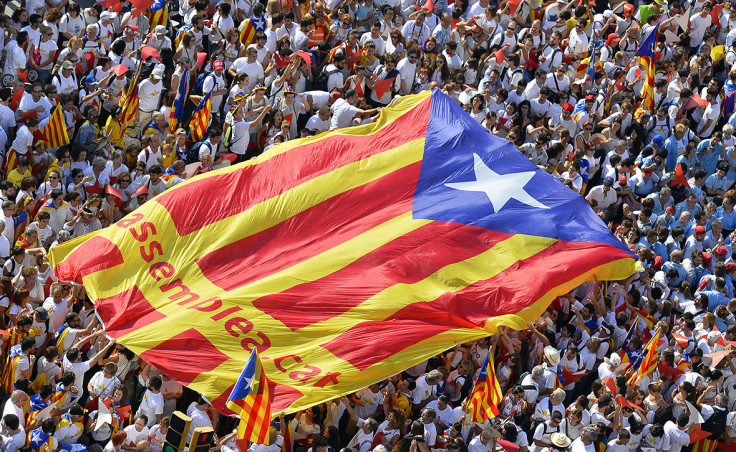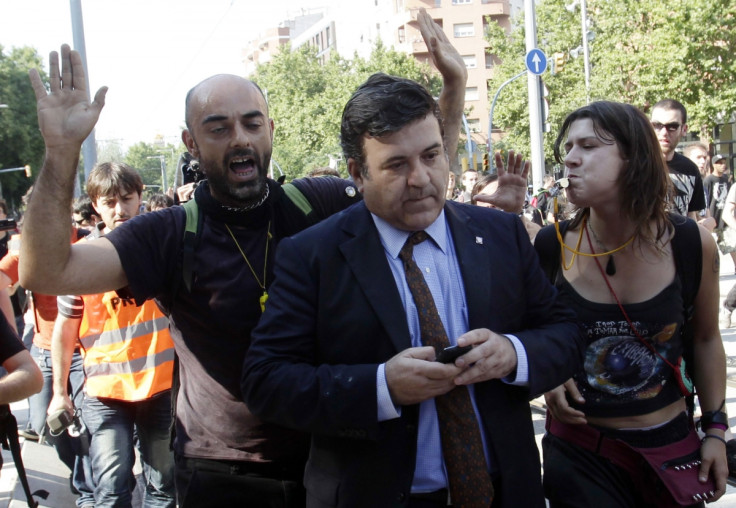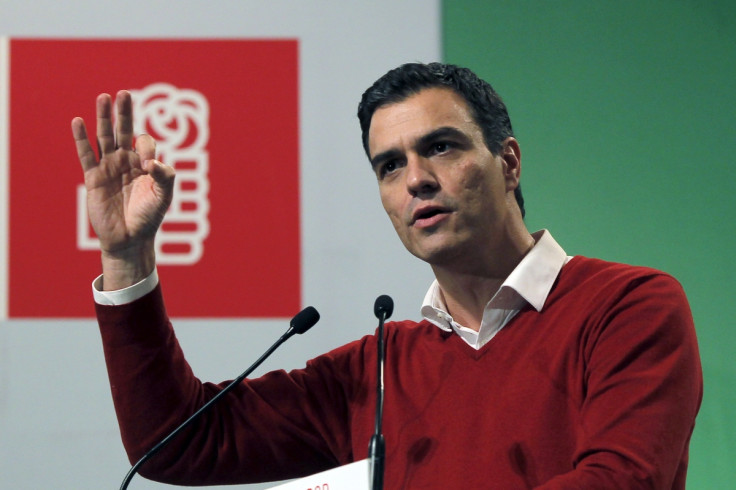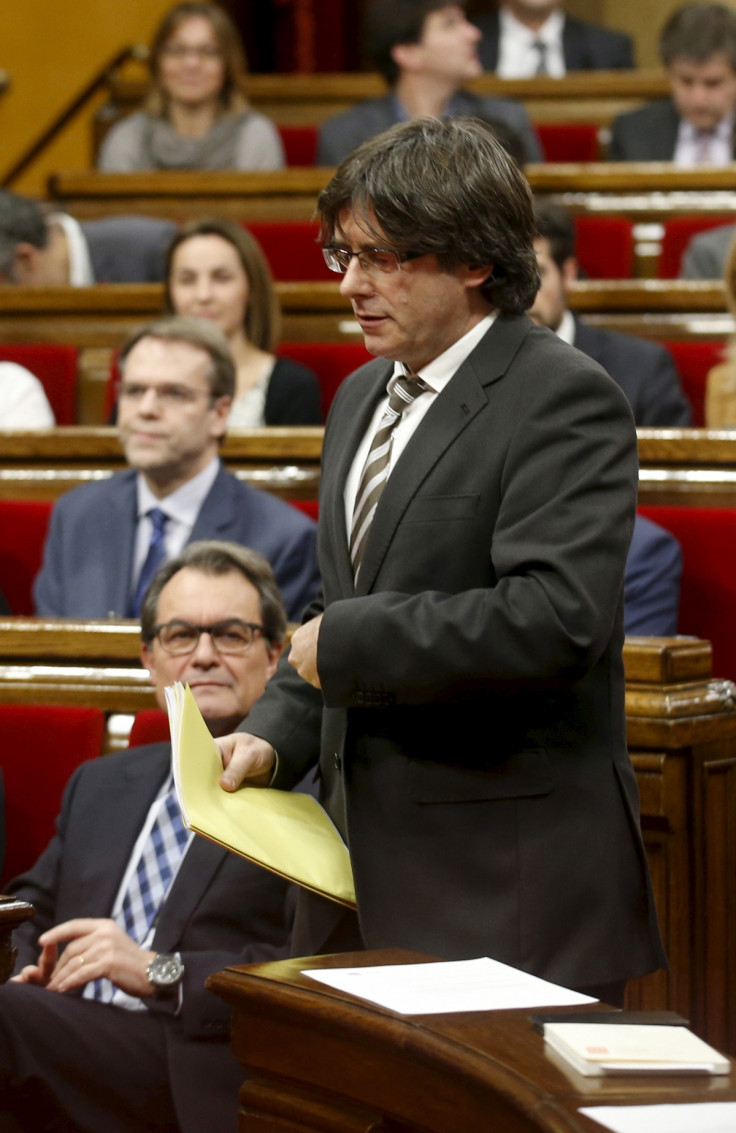Catalonia's independence quest 'wishful thinking', says ex-MP as Spain faces political deadlock

A passion for his homeland of Catalonia was what drove Alfons López Tena into, and ultimately out of politics.
"I am not Spanish and I have never felt Spanish," the former member of the Catalan parliament from 2010 to 2012 told IBTimes UK.
His identity had always spurred him on. For him, all the arguments for Catalan independence were sound. It provides Spain with 19% of its GDP and almost a quarter of its exports. The language and culture that permeates the eastern rump of the Iberian Peninsula and the Balearic Islands, has flourished since the death of Franco, who had suppressed the region during his dictatorship.
Equally strong was the rhetoric coming from a succession of Catalan leaders, even if they were engaged in a constant game of cat and mouse with Madrid. But for López Tena, enough was enough. He abandoned the political goal he had been pursuing since high school because he saw Catalan independence as an impossible dream.
"Some people don't really wish for independence, so it's doomed. It's wishful thinking," he said.
He thinks that independence for the region is not a gift that will ever be bestowed by Madrid - it will only be won through a fight. And for López Tena, Catalans are not serious enough for that fight.
Even though Catalonia provides - or in his words, Madrid siphons - 20bn euros a year, his people are not exercised enough to push for change.
"It [Catalan identity] is not a quest or a struggle or a wish for independence, it is just a way of feeling good together and being together. It is like Cameron's Brexit. He said if you are not willing to change and give the UK more than we have now, we will leave. But that is a bluff. Catalan independence is the same bluff.
"The problem with bluffs, is that the other side has to believe it is not a bluff."
He started to become disillusioned from 2011 with mainstream Catalan parties and their promises over holding a referendum.

"Eighteen is a magical number. They said in 2012: 'In 18 months, we will hold the referendum, regardless of Spanish opinion'. So 18 months passed and the constitutional court forbids the referendum, so they didn't. They are always procrastinating, saying: 'in 18 months' time', and when the time arrives, they say: 'it is impossible'."
The 18-month time-frame was invoked again recently, this time by the new Catalan president Carles Puigdemont, of the Junts Pel Sí (Together for Yes) who has set a road map, for, you guessed it, a year-and-a-half, during which time the institutions of a quasi state would be constructed. These include a separate central bank, taxation, social security and possibly an independent military.
However, the Spanish constitutional court continues to be a spanner in the works, suspending in February the new Catalan Ministry for Foreign Affairs, headed by Raül Romeva, for exceeding the powers of the Catalan Statute of Autonomy.
Puigdemont is considered a more vociferous heir to the Catalan crown, after Artur Mas stepped down in January. In February, he insisted that the push for independence "is for real".
Puigdemont, mayor of Girona, tells his acolytes about the uncertainty in Madrid compared with certainty in Catalonia. Indeed, these are testing times for Madrid as Spain is in deadlock after an election in December 2015 saw Mariano Rajoy's Popular Party, a thorn in the side of the Catalan independence movement, win the most votes, but no majority.

Socialist Party leader Pedro Sánchez will attempt on 2 March 2016 to form a government, and one option is to join forces with Podemos, which is demanding a binding referendum on Catalan independence.
Throw in a smattering of Basque and Catalan MPs with that grouping and there could be a recipe for a stronger Catalan cause.
Antonio Barroso, senior vice president at Teneo Intelligence told IBTimes UK that the Catalan separatists will at least have to pay lip service to pushing for a breakaway from Spain, even if the majority of people in the region would settle for greater powers within Spain.
"The idea is to continue to push to create an independent state and that is the default strategy. That is challenging because of the divisions within the pro-independence movement," he said.
"Part of the independence movement will accept a devolution of powers. A majority want more powers but within Spain, but that will be difficult to satisfy even the more moderate parts of the independence parties.
"Even greater recognition of the Catalan language and culture within the constitution would be what nationalist parties would like to see. Or, maybe, cap the contribution that Catalonia makes to the rest of Spain. Other regions would not allow it but you could certainly change the system, which does not work," Barroso said.
Catalonia is split down the middle and a referendum on independence may not be decisive. The political vacuum in Madrid is not one that Puigdemont can seemingly take advantage of.

Vincenzo Scarpetta from the Open Europe think-tank said that the deadlock may favour Catalan pro-independence parties and their agenda.
"Even if a government can be formed, the problem will remain because the four main parties that have won seats do not agree what strategy to pursue with Catalonia," he said.
"It is far from ideal because what is needed with Catalonia is a strong political answer which was something that was lacking for years under Rajoy.
"All we have heard from Madrid is that what the Catalan independence parties want to do is illegal and there was a total lack of willingness to reach some sort of political solution to this."
A significant barrier is that a referendum on Catalan independence cannot be called by the regional government. Also, the Popular Party still has a majority in the upper house, meaning it can veto any constitutional reform. The Popular Party is concerned reform could open a Pandora's Box because it would lead to demands from other regions, although Scarpetta says reform will be needed sooner or later to address the Catalan question.
The Spanish constitution does not allow for a region to unilaterally declare independence which is what Catalonia wants to do at the end of the process although it is unclear that this is what the new regional president wants.
"The current lack of clarity of what happens next at the national level can be seen as favouring Catalan independence, because there is no answer or strategy from the other side," he said.
Publicly at least, the push for Catalonian independence on the agenda in Europe continues although its relationship with Europe would be in doubt.
Before the constitutional court ruling, Romeva told the BBC that if Catalonia became an independent state, it could not be expelled, because "the EU is a very pragmatic project".
That was an argument that Scotland was having at the time of its referendum in 2014 about its position within the United Kingdom. However Catalonia's fate within Europe is less important than that of its fate within Spain, about which Alfons López Tena has no doubt.
"I got into politics, because I believed it was for real. I am not involved any more because it is not worth being involved in a movement that is non-existent," he said.
© Copyright IBTimes 2025. All rights reserved.






















